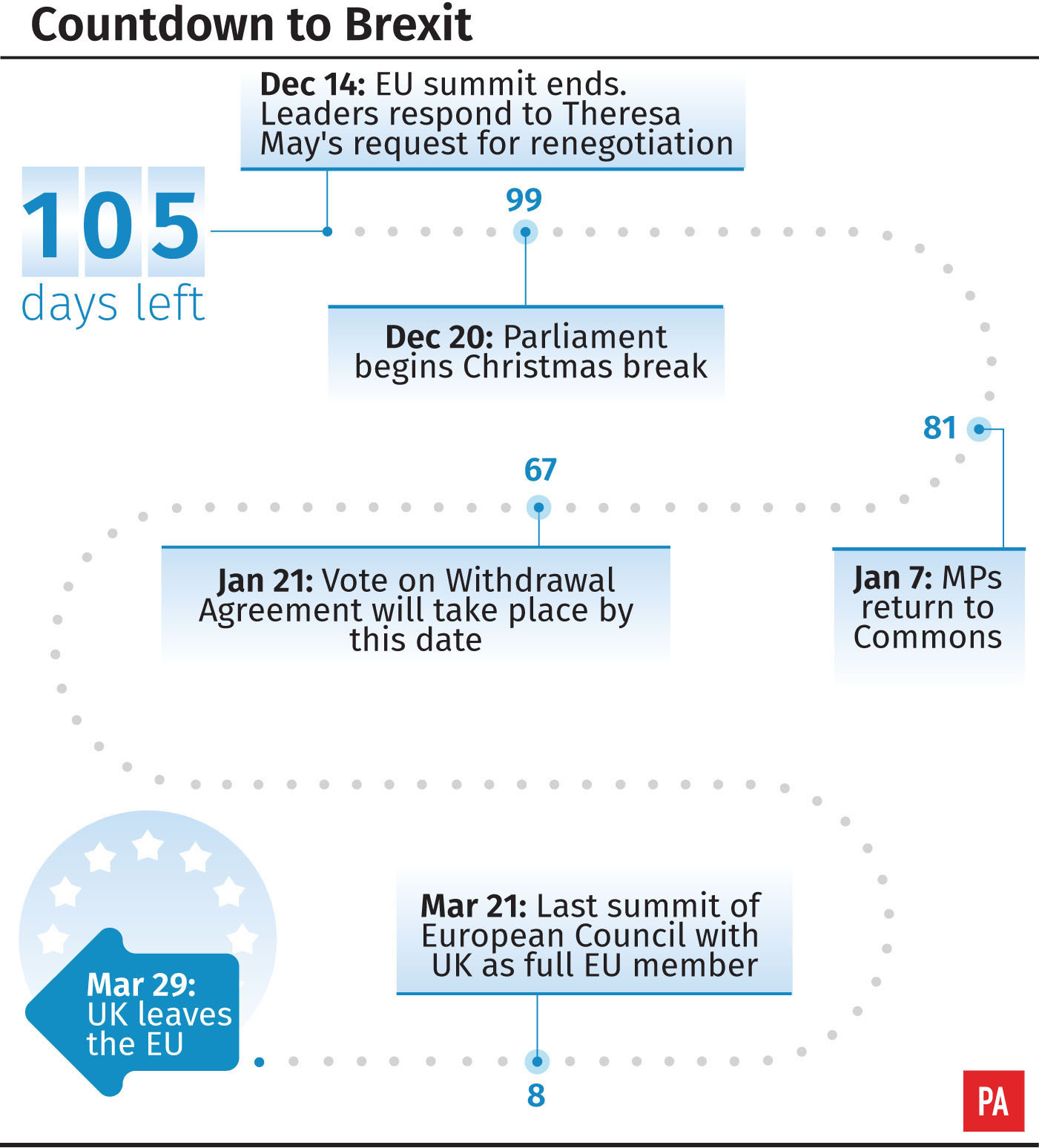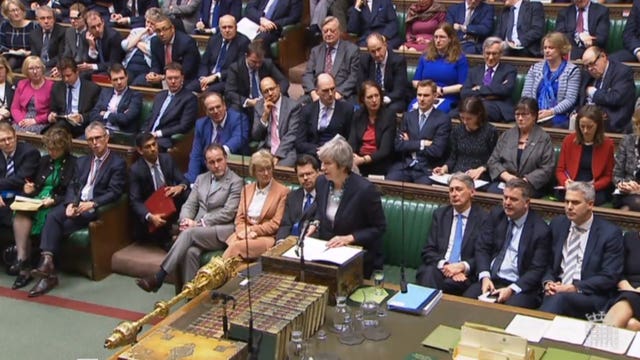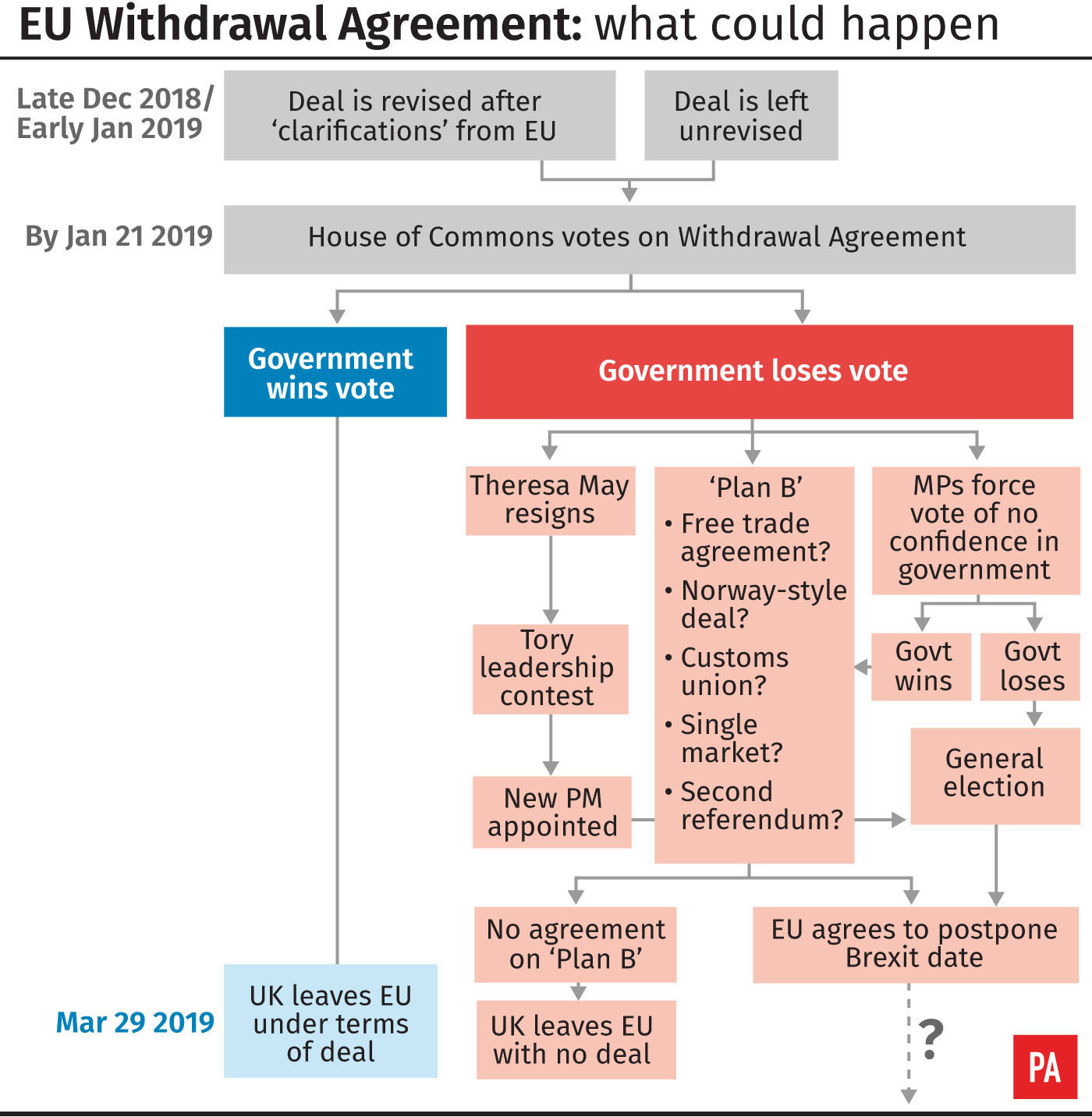Everything you need to know about Brexit
With little more than 100 days to go, many questions remain around the UK’s withdrawal from the European Union.

The countdown to Brexit is nearing the 100-day mark, and yet a lot remains uncertain.
If Google users are any guide, a lot of people are still getting to grips with the issue that has dominated UK politics for the past three years.
Among the most-asked questions about the UK’s EU withdrawal on the search engine last week were “What is Brexit?” and “What is the Brexit deal?”
Here are some of the answers to questions being asked:
– When will the UK leave the European Union?

– Why is March 29 Brexit day?
Under the Article 50 process, the EU treaties cease to have effect in a member state exactly two years after the country informs the European Council of its intention to leave. Britain’s EU ambassador Sir Tim Barrow handed over a letter from Theresa May to council president Donald Tusk on March 29 2017, setting the process in train. The UK actually leaves at midnight Brussels time, which is 11pm in Britain.
– Can it be delayed?
Yes. The European Court of Justice ruled that the UK can revoke its Article 50 letter unilaterally and continue as a full EU member without seeking approval from Brussels. It is also possible to extend the Article 50 process, but this requires unanimous agreement from both the UK and the other 27 member states.
– Is there an agreement on what happens after Brexit?
There is a Withdrawal Agreement agreed by the UK Government and European Commission and approved by leaders of the 27 remaining states in November. This covers issues such as the £39 billion settlement of UK liabilities to EU budgets and the treatment of expat citizens, as well as arrangements to keep the border between Northern Ireland and the Republic open. Alongside this is a Political Declaration, setting out plans to forge a close future relationship in areas such as trade and security, with negotiations due to start once Brexit day has passed. However, the deal must be ratified by the House of Commons and the European Parliament before coming into effect.
– Will Theresa May be able to get the deal through the House of Commons?

– What is the backstop anyway?
The backstop is effectively an insurance arrangement required by the EU. Once the UK is outside the EU customs area, it can strike its own trade deals with countries such as the US, China or Australia. Brussels is concerned that this could mean imports of goods produced under less rigorous standards in areas such as animal welfare, workplace rights and environmental protection. It insists that such goods – like genetically modified crops or chlorine-washed chicken from the US – must not be allowed freely to cross what will become the UK’s only land border with the EU, between Northern Ireland and the Republic. Neither side wants to erect checkpoints, for fear of reviving tensions from the era of the Troubles and disrupting daily life on both sides of the border. So until a broader trade agreement is sealed, the EU insists that Northern Ireland must remain within the European customs area. On her part, Mrs May insists that the backstop arrangement must cover the whole UK, to avoid creating a customs border in the Irish Sea. Brexit-backing MPs are furious because once the UK is in the backstop it can only leave with agreement from Brussels. They fear it will become a permanent arrangement, preventing Britain from striking lucrative new trade deals.
– What if the PM can’t get her deal through Parliament?

– What if we get to March 29 with no deal ratified and no delay to the Brexit process?
The UK would leave the EU without a deal. Provisions in the Withdrawal Agreement on citizens’ rights and payments to the EU budget would not take effect and there would be no transition period. Businesses and public authorities would have to switch immediately to trade under World Trade Organisation rules, which require tariffs on a range of goods. The Government is making preparations to ensure that international agreements in areas such as aviation, food safety and data sharing continue to operate. Many experts believe there would be significant disruption at ports and airports, shortages of food and medicines and queues on motorways, but Brexiteers dismiss these warnings as overblown. Mrs May has promised to protect the rights of EU citizens in the UK, but there has been no such commitment from the EU27.
– And could there be a second referendum?
Certainly a lot of people in Westminster and Brussels believe a re-run vote is becoming more likely. It is difficult to predict the exact circumstances in which it might take place or the question which would be on the ballot paper. If the public was asked to vote again, it is likely that Article 50 would have to be extended, as the legislation and preparations for a ballot would take several months.





